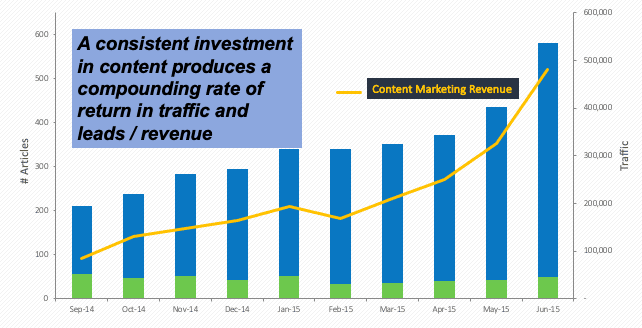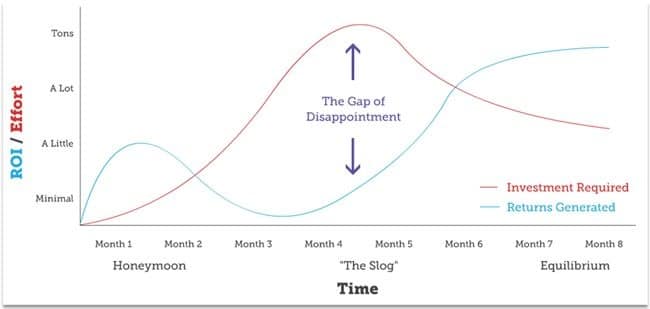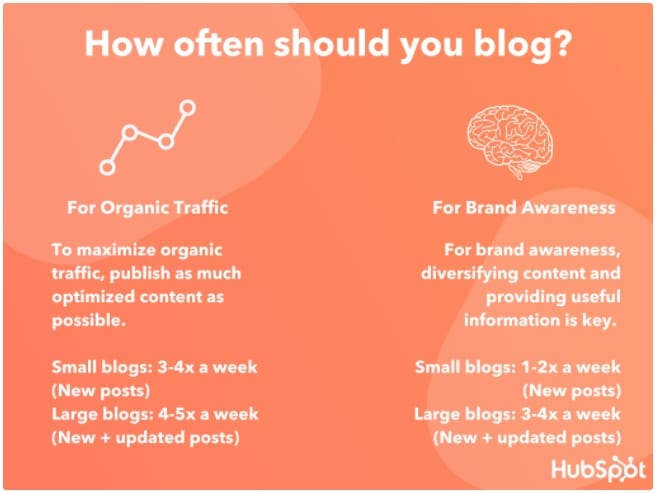
What does it take to be recognized as a high-profile B2B marketing expert?
Opinions vary, but most marketers agree on one important element, and it has nothing to do with followers, likes, education, or qualifications.
B2B marketing experts earn their titles as influencers by sharing valuable insight with others consistently. And they share their thought leadership online and offline where other people want to listen to what they have to say.
So what exactly gives B2B Marketing Experts credibility and makes them valuable?
The fact is, all of the most prominent B2B marketing influencers have a significant amount of experience to back up their opinions.
Each one has managed their own projects and have had to test various concepts, analyze the results, implement best practices, and continually evolve their strategies to meet the needs of an ever-changing industry.
With the unpredictable circumstances our society is facing, these B2B marketing influencers have kept their content consistent and relevant. Just like any good brand content marketing strategy.
They carefully craft and manage their personal brand. They have a LinkedIn marketing strategy for themselves and their content.
They have used the Covid-19 pandemic as a catalyst to change and improve their means of sharing what they know with an increasingly digital world.
Consistency is Key to Marketing Influencer
These B2B Marketing experts have grown their following and their influence in difficult times by sharing their success and helping other people. And all it took was a commitment to sharing regularly.
For top-tier B2B marketers, the insights that they share offer a unique value that you won’t find elsewhere, either because:
- They’re pioneers of their trade
- They are amazing at what they do
- They share more often or in more creative ways
The most successful influencers in the game are aware and proactive when it comes to this digital media shift. These marketing experts have accordingly adjusted their approach to sharing their insights with fellow and upcoming marketers.
Social Media Is One Tool – But They Start With Platforms They Own
An important aspect of these B2B marketing experts is the use of their digital platforms. Twitter, instagram, and TikTok have become a crucial element of our society.
Most of these influencers start with their own websites or personal blogs. They don’t “build their house on rented land” as B2B Marketing expert Joe Pulizzi would say.
Yes, their presence on social media has set them apart from other marketers in the way that they efficiently utilize their platforms to spread information.
But they don’t rely on social media to deliver marketing outcomes and business growth.
Another characteristic that distinguishes the best B2B marketers is that they never stop learning or sharing their insights with others.
Storytelling and Marketing Influence
Ann Handley once said that to become successful in marketing, you need to “make your audience the hero of your stories!”
These folks are constantly testing new stories, better jokes, developing new ideas, and sharing their discoveries. They keep their content and media up to date and relevant to the happenings of the ever changing marketing world.
And they don’t make their content all about themselves! They put their audience first!
If you want to learn the best ways to achieve success, you have to learn from the best. So follow these amazing B2B Marketing experts. Watch and learn and emulate what they do if you want to become known as an expert in your field.
Here are our picks for the top B2B marketing Influencers
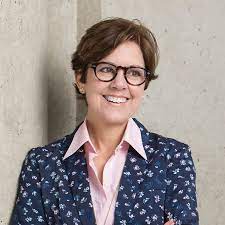 Ann Handley
Ann Handley
Ann Handley is Chief Content Officer for MarketingProfs.com, one of the best online resources to develop your marketing skills . She claims to wage a war against mediocre content and is a veteran at creating and managing digital material that helps build relationships for both businesses and individuals.
 Joe Pulizzi
Joe Pulizzi
Joe Pulizzi is the founder of Tilt, a content community for content creators and content entrepreneurs. He is also the founder of the Content Marketing Institute (CMI), since sold to UBM and considered by many to be the godfather of content marketing.
 Jay Baer
Jay Baer
Jay is the president of strategy consulting firm, Convince & Convert, and is a regular contributor to various marketing websites and platforms online. Baer is also a sought after keynote speaker and New York Times best-selling author whose expertise lies within marketing and sales.
 Michael Brenner
Michael Brenner
Michael Brenner is the former VP of Digital Marketing at SAP, he’s been a CMO of multiple high-growth startups, is a top Content Marketing influencer and now runs this fast-growing content marketing agency, Marketing Insider Group. He is also the author of The Content Formula, and Mean People Suck. When he’s not running after his 4 kids, Michael enjoys helping small companies, SaaS startups and larger brands grow their business through content marketing.
 Doug Kessler
Doug Kessler
Doug Kessler is Velocity Partners’ creative director and co-founder, a well-established digital marketing company that focuses on branding, demand generation, strategy, and content marketing. He takes a refreshingly honest standpoint on not only content marketing, but also global issues, and politics.
 John Hall
John Hall
John Hall is the co-founder and president of Calendar, a scheduling and time management app. He’s also the strategic adviser for Relevance, a company that helps brands differentiate themselves and lead their industry online. You can book him as a keynote speaker here and you can check out his best-selling book “Top of Mind.”
 Ardath Albee
Ardath Albee
Ardath Albee is a B2B marketing strategist with tons of speaking, writing, and workshop experience. She is the CEO for the consulting firm Marketing Interactions, Inc.. On top of being a B2B Marketing Strategist, Ardath is also author of eMarketing Strategies for the Complex Sale. Ardath worked for companies such as Cisco, Adobe and Teradata.
 Douglas Burdett
Douglas Burdett
Douglas Burdett is a marketing agency founder, and a former Madison Avenue ad man and U.S. Army artillery officer. … As the host of The Marketing Book Podcast, each week he interviews authors of new marketing and sales book. He’s done over 225 interviews and has read every single book on the show.
 Pam Didner
Pam Didner
Pam Didner is a skilled marketer, speaker and writer in the digital and tech marketing field. She helps her clients turn content into sales efficiently and effectively. She’s the author of several books, Global Content Marketing, Effective Sales Enablement, and The Modern AI Marketer.
 Nancy Duarte
Nancy Duarte
Nancy Duarte is a communication expert who has been featured in every major magazine you can imagine. Her firm, Duarte, Inc., is the global leader behind some of the most influential visual messages in business and culture.
 Carla Johnson
Carla Johnson
Carla Johnson is a global keynote speaker, a best-selling author of more than 10 books and a recognized marketing and innovation strategist. Having lived, worked, and studied on five continents, she’s partnered with top brands and conferences to train thousands of people how to rethink the work that they do and the impact they can have.
 Andrew Davis
Andrew Davis
Andrew Davis is one of the best keynote speakers you will ever see. He’s written several books such as Brandscaping, Town Inc., and Digital Marketing Growth Hacks and he regularly posts podcasts and videos about The Loyalty Loop!
 Stephanie Stahl
Stephanie Stahl
As General Manager of CMI, she lead the brand’s event and digital operations. Previously, she served as VP of Content Marketing for UBM’s Technology portfolio, providing strategic guidance on content development, content optimization, audience engagement, and go-to-market platforms for our technology clients.
 Sarah Goodall
Sarah Goodall
Sarah Goodall is the founder of Tribal Impact – a company specializing in B2B social business and employee advocacy. She has spent 20+ years in B2B Marketing, most recently leading social business for SAP in Europe, Middle East and Africa.
 Robert Rose
Robert Rose
Robert Rose is a sought-after consultant, best-selling author, keynote speaker, and one of the world’s most recognized experts in digital content strategy and marketing. … For more than 12 years, Robert and his firm The Content Advisory has worked with more than 500 companies, including 15 of the Fortune 100.
 Tim Washer
Tim Washer
Tim Washer spent 20 years at IBM, Cisco and Accenture, mostly feigning interest on conference calls. Moonlighting as a comedy writer/actor on SNL, Conan and The Late Show equipped him to use humor to humanize some of the world’s most boring brands. He uses laughter to help corporations capture attention, show empathy, build rapport and make a persuasive case with B2B technology audiences on topics such as the Internet of Things and mainframe computers, where the comedy writes itself. Check out Tim’s Comedy reel.
 Avinash Kaushik
Avinash Kaushik
He’s the Digital Marketing Evangelist for Google, and a passionate teacher who shares his perspective frequently via multiple channels: a weekly newsletter (The Marketing Analytics Intersect), a bi-monthly blog (Occam’s Razor) and two best-selling books that have been translated into over a dozen languages (Web Analytics: An Hour A Day and Web Analytics 2.0).
 Matt Heinz
Matt Heinz
Matt is President and Founder of Heinz Marketing with 15+ years of marketing, business development and sales experience from a variety of organizations and industries. He is a dynamic speaker, memorable not only for his keen insight and humor, but his actionable and motivating takeaways.
 Simon Sinek
Simon Sinek
Simon may be best known for popularizing the concept of The golden circle and thew power of WHY in his first TED Talk in 2009. Since then he has authored (global bestsellers Start With Why , Leaders Eat Last, Together is Better, Find Your Why and The Infinite Game.
 Marcus Sheridan
Marcus Sheridan
Marcus Sheridan is an amazing keynote speaker known for his unique ability to excite, engage and motivate live audiences and in 2017 Forbes names Marcus one of 20 “Speakers You Don’t Want to Miss.” Marcus is the author of the content marketing guidebook, “They Ask, you Answer,” and Marcus has been featured in the New York Times, Inc., The Globe and Mail, Content Marketing Institute, Social Media Examiner, and more.
 Juntae DeLane
Juntae DeLane
Juntae DeLane is the founder of Digital Branding Institute, Sr. Digital Brand Manager for the University of Southern California, and principal consultant for DIGITAL DELANE. He frequently delivers talks around the country advancing the practice of digital branding. Juntae not only writes the premier digital branding blog, but also shares his expertise through his podcast “The Digital Branding Podcast.”
 Gini Dietrich
Gini Dietrich
Gini Dietrich is the founder and CEO of Arment Dietrich, an integrated marketing communications firm. She is the author of Spin Sucks, co-author of Marketing in the Round, and co-host of Inside PR. She also is the lead blogger at Spin Sucks and is the founder of Spin Sucks Pro.
 Christopher Penn
Christopher Penn
Christopher S. Penn is an authority on analytics, digital marketing, marketing technology, data science, and machine learning. … Prior to co-founding Trust Insights, he built the marketing for a series of startups with a 100% successful exit rate in the financial services, SaaS software, and public relations industries.
 Deanna Ransom
Deanna Ransom
Deanna Ransom is the Executive Director for Women in Revenue. She is a revenue and brand innovator, business transformation leader, and storyteller, who is passionate about diversity, equity and inclusion and empowering women to succeed.
 Tequia Burt
Tequia Burt
Tequia Burt is the editor-in-cheif of the Linked Marketing Solution blog and she is the founder and CEO of Content[Ed.], is a veteran editor and writer with more than 15 years of experience covering the B2B marketing landscape.
 Oli Gardner
Oli Gardner
Unbounce co-founder Oli Gardner is a globally recognized thought leader on the topics of digital marketing, conversion optimization, and user experience. In an expansive 20 year career, he has crossed the boundaries between software development, graphic design, usability, interaction design, information architecture, and of course his core discipline of marketing optimization.
 Lauren Goldstein
Lauren Goldstein
Lauren is the Managing Director at Winning by Design helping growth stage SaaS companies scale. She is also Co-Founder at Women in Revenue, a Board Member & Advisor for several organizations. Lauren has been a leader in the B2B Marketing industry her entire career working in agencies such as Babcock Jenkins and Annuitas where she served as Chief Revenue Officer and now serves on the board.
 Andy Crestodina
Andy Crestodina
Andy Crestodina is a co-founder and the Strategic Director of Orbit Media, an award-winning web design company in Chicago. Over the past 16 years, Andy has provided web strategy and advice to more than a thousand businesses.
 Tracy Eiler
Tracy Eiler
Tracy is Chief Marketing Officer at Alation. She is one of the 15 Most Influential Women in B2B Marketing and a B2B Demand Marketing Game Changer. She is a best-selling author on sales and marketing alignment and a founding member of Women in Revenue. She holds a BA from the University of Michigan.
 Carlos Hidalgo
Carlos Hidalgo
Carlos Hidalgo is the co-founder of B2B marketing agency Annuitas and has reinvented his life as a Life Design Coach helping people (and their teams) establish healthy boundaries so they can achieve balance and thrive in their relationships and their work. He is also an Advisor, Author, Speaker, Marketer, and Consultant.
 John Jantsch
John Jantsch
John Jantsch is a small business marketing speaker, marketing consultant, and bestselling author of Duct Tape Marketing, The Referral Engine, The Self-Reliant Entrepreneur, and The Ultimate Marketing Engine. John was blogging about small business and b2b Marketing for as long as anyone.
 Tyler Lessard
Tyler Lessard
Tyler leads the marketing team at Vidyard. He’s a passionate content marketer and storyteller at heart who thrives on creating exceptional customer experiences. Prior to Vidyard he led Global Alliances and Business Development at BlackBerry.
 Brian Dean
Brian Dean
Brian Dean is the founder of Backlinko, a marketing website that specializes in SEO training and link building strategies. Brian is also a regular contributor to a number of high-profile digital marketing portals and he has established a name for himself as the go-to guy for quality link building practices.

Lilach Bullock
Lilach Bullock is one of Forbes Top 20 Women Social Media Influencers. She was also named the #1 Digital Marketer by Career Experts, and the top Social Influencer by Oracle. She is extremely active across social media, frequently using her profiles to repost and link to her numerous blog posts that reach across the digital marketing spectrum.
 Michele Linn
Michele Linn
Michele Linn is the founder of Linn Communications and a pioneer in the content marketing space since 2010 when she joined Content Marketing Institute (CMI) as their first employee. Since that time, she has not only written and spoken about content marketing, but she used these very principles to help build CMI into a company worth millions.
 Marissa Pick
Marissa Pick
Marissa is a Senior Marketing Director at PROS with a demonstrated track record of achievement in digital marketing, social media advertising, B2B and multichannel marketing, content development, campaign planning and management, brand communications, audience development, and community building.
 Tamara McCleary
Tamara McCleary
Tamara McCleary is an internationally recognized expert on relationships, influence and conscious business. Tamara is also an IBM Futurist. She presents keynotes and workshops on the topics of Conscious Business, Social Influence, Women’s Empowerment, Marketing to Millennials and Women, Women’s Leadership, Diversity, and Social Economics in a Sharing Economy.
 Danielle Guzman
Danielle Guzman
Danielle Guzman is the Global Head of Social Media for Mercer. She is a seasoned financial services and insurance industry professional with rich experience in leadership positions spanning product development, marketing, customer insights and training. She has over 15 years of experience in international, multilingual and multicultural work.
 Melanie Deziel
Melanie Deziel
Melanie Deziel is the founder and Chief Content Officer of StoryFuel, and the author of the best selling marketing and business communications book “The Story Fuel.” She is a content strategist, consultant and speaker who has won multiple awards in marketing and advertising. She travels the country educating marketers, journalists and students on the role that native advertising and branded content can play in their overall business strategy.
 Tom Pick
Tom Pick
Tom Pick helps B2B technology clients increase their visibility, credibility, and business success online. His expertise in SEO, search marketing, social media, content marketing and influencer marketing has helped clients of all shapes and sizes. His Webbiquity B2B marketing blog covers B2B lead generation, web presence optimization, social media, influencer marketing, SEO, and search engine marketing.
 Kyle Lacy
Kyle Lacy
Kyle is SVP Marketing at Seismic (which acquired his former company Lessonly). He applies the lessons learned while working at a venture capital firm, an IPO, an acquisition by one of the largest software companies in the world to drive revenue at Lessonly / Seismic.
 Katie Martell
Katie Martell
Katie is a keynote speaker, PR and communications consultant, startup CMO and SaaS entrepreneur, and B2B “Director of Buzz” working on “Woke-Washed,” a forthcoming book and documentary project exploring the collision of marketing and social movements.

Rand Fishkin
Rand is an entrepreneur and digital marketing / SEO expert. He is the author of “Lost and Founder” and co-founder of SparkToro, and previous founder and CEO of MOZ, one of the leading SEO tools on the market. His whiteboard Friday videos helped many B2B marketing experts understand the value of SEO.
 Jay Acunzo
Jay Acunzo
Jay Acunzo is a speaker, comedian, author of “Break The Wheel” and podcaster who travels the world and posts on Instagram to help creative people find their voices. His content is humorous and will be sure to get you thinking about what you do and why you do it.
 Michaela Alexis
Michaela Alexis
Michaela Alexis is a speaker on topics related to personal branding on social media, particularly LinkedIn. Michaela has also co-authored a video marketing book, Think Video, appeared on season one of Amazon Prime series “The Social Movement” and became an official LinkedIn Learning instructor with her course, “Grow your Business with LinkedIn Pages”.
 Jacquie Chakirelis
Jacquie Chakirelis
A national public speaker, networker and entrepreneur with more than twenty years of experience working in marketing, social media, digital consumer content, user-generated content, and women leadership. As founder of the Online Platform Institute and host of the weekly podcast Platform FM, Jacquie speaks with digital media entrepreneurs about simple but powerful media strategies to grow and monetize an online platform.
 Michael Barber
Michael Barber
Michael is an award-winning brand and marketing strategist with significant experience developing impactful marketing strategies and delightful customer experiences. Builder of world-class teams who believes leaders must have a growth mindset and project it onto their team, create clarity, energize their team, and leverage their team’s diversity by creating safe environments where everyone feels welcomed.
 Jason Miller
Jason Miller
Jason Miller is the Marketing Director at CreativeX, former marketer at ActiveCampaign, LinkedIn, Microsoft, and Marketo. He write the book “Welcome To The Funnel” and is frequently seen and heard at the best marketing conferences around the globe an on marketing podcasts.
 Nancy Harhut
Nancy Harhut
Nancy Harhut is passionate about the impact of behavioral science on marketing. An Online Marketing Institute Top 40 Digital Strategist, Social Top 50 email marketing leader, and the winner of numerous International ECHO awards for marketing effectiveness, she has creative directed integrated campaigns for clients such as IBM, Dell, Nationwide, Sheraton, TripAdvisor, American Express, and more.
 Carmen Hill
Carmen Hill
Carmen Hill is a content strategist and writer for Chill Content, where she helps companies plan, create and manage customer-focused content that aligns with their business goals and brand strategy while making the most of modern marketing technology such as marketing automation, personalization and account-based marketing platforms.
 A. Lee Judge
A. Lee Judge
A. Lee Judge is the Co-Founder and CMO of Content Monsta, a digital content agency. He also serves as Global Digital Marketing Manager, at Hexagon Geosystems. Previously, Lee served as Sr. Digital Marketing Director at B2B customer service software company Jacada, connecting the organization’s Sales and Marketing Operations.
 Lee Odden
Lee Odden
Lee Odden is a B2B marketing strategist, author, international speaker and CEO of TopRank Marketing. His work integrating search, social, content, and influencer marketing for B2B brands has been recognized by the Wall Street Journal, The Economist and Forbes as well as CMO.com and MarketingProfs.
 Nick Westergaard
Nick Westergaard
Nick Westergaard is a strategist, speaker, author, and educator. He is Chief Brand Strategist at Brand Driven Digital, where he helps organizations of all shapes and sizes build better brands online. He also teaches at the University of Iowa’s Tippie College of Business, is a regular columnist for The Gazette, and is the host of the popular On Brand podcast.
 Craig Rosenberg
Craig Rosenberg
Craig is a Distinguished Vice President, Analyst, serving heads of sales and marketing for Gartner. In this role, Mr. Rosenberg develops research and advises customers on the strategy, people, process, technology, and tactics across their sales and marketing that are required to drive repeatable, scalable growth.
 Adele Revella
Adele Revella
Adele Revella is the CEO and Founder of Buyer Persona Institute and a leading authority on buyer personas. Through her company’s research and workshops, Adele’s buyer persona methodology has become the gold standard for thousands of marketers in hundreds of global companies.
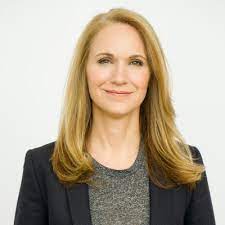 April Dunford
April Dunford
April advises growing tech companies after a 25-year career as a startup executive, running marketing, product, and sales teams. She led teams at 7 successful B2B technology startups. Most of those startups were acquired, and she ran big teams at IBM, Siebel, Sybase, and others.

Dave Parks
Dave Parks is a Vice President of Product Marketing at ContractLogix where he manages the company’s overall marketing strategy and initiatives including product marketing, demand gen, digital, content, and public relations. Dave has over two decades of strong product and content experience having served in senior marketing roles with Progress, Ciena, Lucent, and Cascade Communications and as an industry analyst with the Yankee Group.
 Brian Shanahan
Brian Shanahan
Brian Shanahan is the President and Founder of Shanahan Strategy which provides innovative digital marketing strategies for industrial manufacturers and sales consulting for small to mid-sized industrial and manufacturing businesses. Brian’s career in marketing has served companies like Cummins West and Armstrong World Industries.
Top B2B CMO Experts
 Ann Lewnes (Adobe)
Ann Lewnes (Adobe)
Ann Lewnes is Chief Marketing Officer and Executive Vice President, Corporate Strategy & Development of Adobe, one of the largest and most diversified software companies in the world. Prior to Adobe, Ann spent 20 years building the iconic Intel Inside brand as VP of Marketing.
 Chris Capossela (MSFT)
Chris Capossela (MSFT)
Chris Capossela is Microsoft’s chief marketing officer and executive vice president of worldwide consumer business. Capossela joined Microsoft in 1991 as a marketing manager for the Windows Seminar Team. In his more than 25 years at Microsoft, Capossela has held a variety of leadership positions and oversaw the creation of new business opportunities and consumer experiences, including the transition of Microsoft Office on-premises products to Office 365. Prior to taking on his role as CMO and EVP, he served as the worldwide leader of the Consumer Channels Group, responsible for sales and marketing activities with OEM, operator and retail partners.
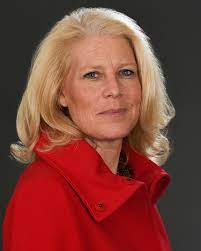 Linda Boff (GE)
Linda Boff (GE)
Linda Boff has been the Chief Marketing Officer of General Electric Company since September 2015 and has been its Vice President since May 1, 2016. Ms. Boff leads the General Electric Company’s digital industrial marketing strategy, intensify commercial and customer impact and continue to accelerate GE’s brand.
 Jon Miller
Jon Miller
Jon is a marketing entrepreneur and thought leader. He is currently the Chief Marketing Officer at Demandbase, the leading account-based marketing platform. Previously, Jon was the CEO and founder of Engagio (acquired by Demandbase) and was co-founder at Marketo (acquired by Adobe), a leader in marketing automation.
 Heidi Bullock (Tealium)
Heidi Bullock (Tealium)
Heidi Bullock is the Chief Marketing Officer at Tealium. Prior to joining Tealium she was CMO at Engagio (acquired by DemandBase) and she served as Group VP of Global Marketing at Marketo (acquired by Adobe). Heidi has been a leader in defining modern B2B Marketing through her leadership and success.
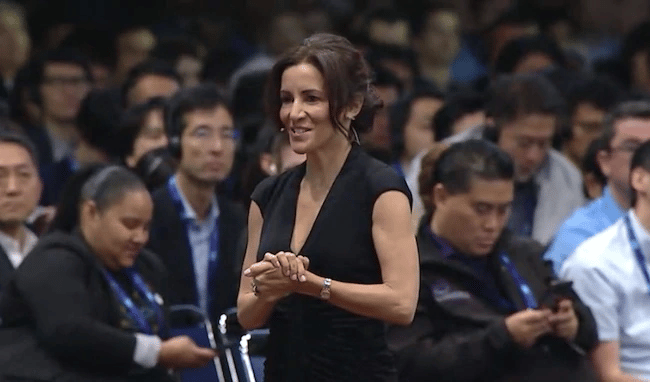 Stephanie Buscemi (Confluent)
Stephanie Buscemi (Confluent)
Stephanie Buscemi is the Chief Marketing Officer at Confluent. Stephanie joined Confluent from Salesforce where she most recently served as global CMO. Over her career, she has served in executive leadership and senior marketing roles within the enterprise technology space including stints at IHS Markit, SAP and Hyperion.
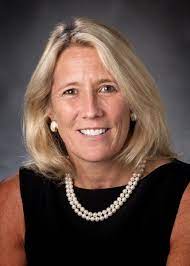 Kathy Button Bell (Emerson)
Kathy Button Bell (Emerson)
Kathy Button Bell is senior vice president and chief marketing officer for Emerson. In 2016, she was named to Emerson’s Office of the Chief Executive, which helps develop and guide the company’s global business strategies. Before joining Emerson, Button Bell was president of her own marketing consulting firm specializing in market planning, brand building and marketing training for Fortune 500 manufacturers. Prior to that, she was executive director of worldwide marketing communications for Converse Inc. and director of advertising and public relations for Wilson Sporting Goods.
 Amisha Gandhi (Tipalti)
Amisha Gandhi (Tipalti)
Amisha is the SVP, Marketing at Tipalti. Previously, she was VP of influencer marketing at SAP Ariba and also led mobile product marketing. She’s worked in public relations firms and marketing roles in Silicon Valley for the past 15 years, working for everyone from startups to large enterprises such as HP, Google, Accenture and Time-Warner.
 Siddharth Taparia (JLL)
Siddharth Taparia (JLL)
Siddharth Taparia is the CMO of Jones Lang LaSalle. Prior to this, Taparia was the Senior Vice President and Global Head of Corporate Brand and Experience Marketing at SAP, the market leader in enterprise application software. During his career to date, he has held several leadership positions across marketing, strategy, consulting, product management, and mergers and acquisitions.
 Kirsten Allegri Williams (Optimizely)
Kirsten Allegri Williams (Optimizely)
Kirsten Allegri Williams is Chief Marketing Officer of Optimizely, where she leads global marketing and communication strategy. Prior to joining Optimizely, Kirsten was Chief Marketing Officer for SAP SuccessFactors, the world’s leading provider of technology solutions for Human Resources
 Ben Gibson (Nutanix)
Ben Gibson (Nutanix)
Ben Gibson is the Chief Marketing Officer at Nutanix where he oversees the company’s global marketing strategy to accelerate customer adoption of its enterprise cloud solutions. Before joining Nutanix, Ben was Chief Marketing Officer at F5 Networks, Veritas, and Aruba Networks. Earlier in his career, Ben held several marketing leadership roles at Cisco.
 Scott Anderson (Intermedia)
Scott Anderson (Intermedia)
Scott Anderson serves as the Chief Marketing Officer of Intermedia. Scott started at Intermedia in Oct of 2018. Most recently, as Chief Marketing Officer for marketing cloud company, Sitecore, Anderson has served in executive marketing roles at Hewlett Packard (now HPE), Sun Microsystems (now Oracle), Bazaarvoice, Weyerhaesuer, and CNN International.
 Mark Wilson (Blackberry)
Mark Wilson (Blackberry)
Mark Wilson is the Chief Marketing Officer for BlackBerry, where he leads the company’s corporate, product and field marketing functions. Mark brings with him extensive experience building brand preference, driving integrated marketing for a number of well-known companies.
Final Thoughts
These 75 B2B Marketing experts, influencers and CMOs are a treasure trove of valuable information, which is why B2B marketers should be looking to them for tips, tricks, best practices, and inspiration.
Whether you’re trying to establish your brand online or develop an effective content marketing programs, these experts are excellent sources of inspiration who impart an abundance of awesome content online, so don’t miss out on what they have to say.
The post Top B2B Marketing Experts to Follow appeared first on Marketing Insider Group.


